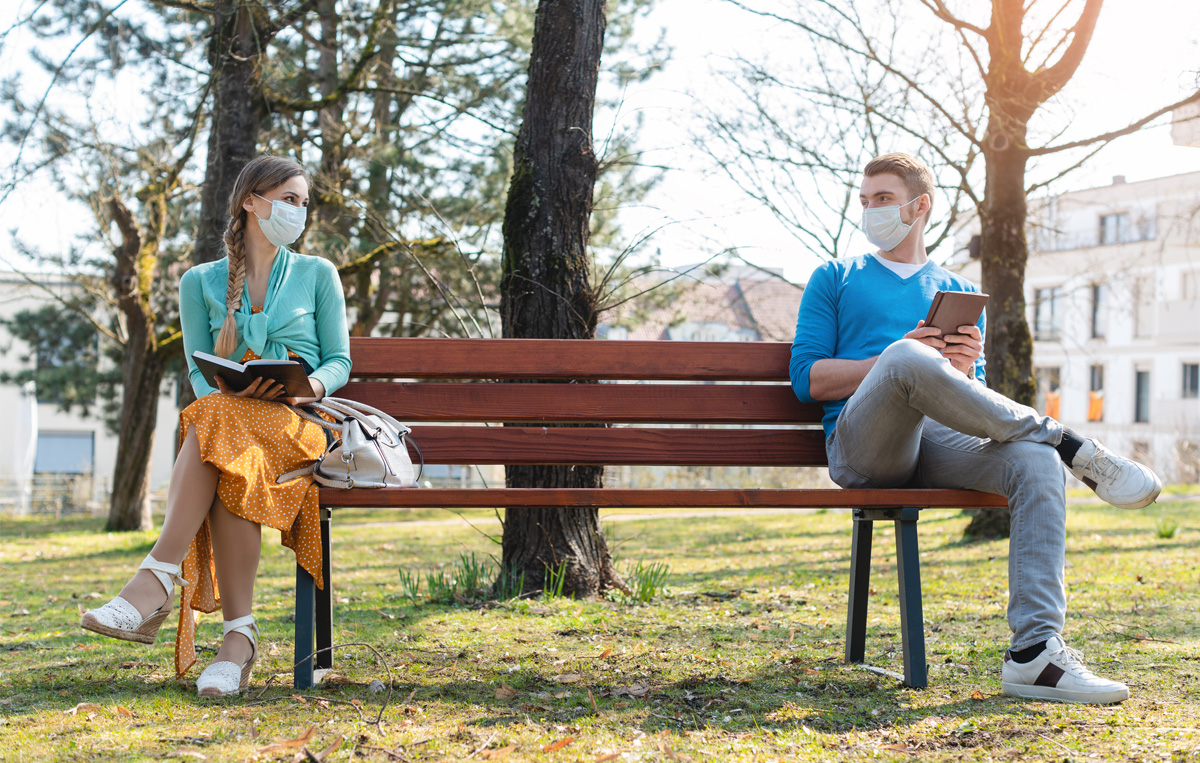Social distancing and the closing of typical meeting places are designed to mitigate the spread of COVID-19 (the novel coronavirus). Public health officials believe these steps can be effective tools in slowing down the impact of the virus.
And while necessary, these changes are often psychologically difficult for people, according to Julie Liefeld, associate professor of marriage and family therapy and director of the SCSU Family Therapy Clinic.
“Even if you identify as mostly introverted, a public health directive to distance yourself from others for safety causes our fight or flight impulses to kick in and try to take over,” Liefeld says.
“This is due, in part, because of the forced choice nature of the directive and because you are facing the unknown. So many of us will notice that we are more restless, anxious, worried, and/or unable to take advantage of the downtime during this phase of managing COVID-19. “
Liefeld offers 10 suggestions to help manage our feelings and our mental health:
- Be mindful of what you are going through. Even if you aren’t ill or in a difficult situation, you are experiencing stress. It’s important to acknowledge how you feel. Write them down and talk them out. Every morning write out what is weighing on your mind. Set a timer for 5 minutes and let it rip. Don’t stop writing until the timer goes off. Close the journal and leave it all right there. Don’t spend time re- reading what you wrote down.
- Establish a pattern or routine for your day and evening, and stick to it. Writing down a schedule or a plan for your day has been shown to make you feel grounded and safer. Even if you don’t do all the things on the schedule – writing them down is the calming factor). And keep your sleep schedule healthy.
- Make movement a part of your day. Find a way to move or exercise, even if it’s climbing your stairs a few times. Do some stretching, march in place, do some yoga. Investigate guided exercise or movement online. Lots of gyms and places that feature yoga are streaming free classes every day. Don’t give into any internal cues that say, “why bother” or “I will do that tomorrow.”
- Open your windows or go outside. The CDC is recommending getting fresh air while complying with social distancing. Take a walk around your block, yard or patio. Breathe in and practice mindfully noticing your surroundings.
- Minimize or avoid the use of alcohol and/sedatives as a coping mechanism to relax or de-stress. Instead, take a bath, drink tea or a similar non-alcoholic drink. Remember that the restlessness that accompanies worry only lasts for 90 seconds.
- Incorporate sound in your environment. That can include music and talking to a friend, partner, or family member by phone or video chat. Change up your hand washing song.
- Moderate your exposure to the news and people who are focused on increasing your worry. Once you have your daily information of the general situation and for what your role in the world is, turn it off. For those friends and family members who make you feel MORE anxious, limit your interactions to a polite check in and then move on to more constructive conversations.
- Manage your feelings of guilt, fear, blame, anger, and shame by noticing how you feel, and reminding yourself about what you can and can’t control. Focus on what you can control and being good at taking care of those things.
- Ask for help if you think you might need it. You can dial 211 to get more support for mental health support, financial support, or instrumental needs such as food or heat.
- Allow yourself to adjust to this new mode of being. Acknowledge how you are feeling and reacting to it, and then create a structure that supports healthy function. We are learning as we go, and you are not alone.
Be well.



